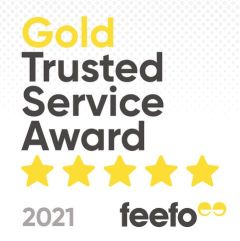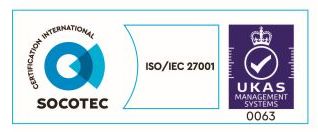We had a great time chatting with John Vuong on episode 33 of our podcast. After spending five years at Yellow Pages, John launched Local SEO Search, which helps small to medium-sized businesses to rank organically.
During the episode, John talks about the value of SEO for small businesses and why it is important to invest your time in. We talk about longtail keywords and how it makes sense to target them instead of going up against multinational companies for the high-volume search terms.
John also shared some tips for small business owners. He covered the core pillars of SEO, such as on-page, backlinking, and more. He also spoke about the challenges of understanding technical issues and whether it is better to outsource your efforts to an agency.
You can listen to the full episode by checking out 20 Minute Marketing on Spotify, Apple Podcasts, Google Podcasts, and more. Additionally, you can check out the episode on our website, by heading to The Reach Podcast page. Here's a recap of our conversation with John...

First of all, you mentioned that you specialise in SEO for small businesses. And that started with directories. So how did that come about?
So, I previously worked at Yellow Pages. I was there for over five years. And over that period, I worked in the front line as a sales and marketing professional, with over 1000-2000 business owners. At that time, around a decade ago, Google was in its infancy. However, more and more people were consuming content through search results. And that's how I came about starting this. I knew that there was a demand from small business owners to move away from traditional advertising.


Let's dive into SEO now. As you mentioned, a lot of local business owners may not have the luxury of a marketing team that can work on SEO daily. How can they invest their time efficiently?
That's the challenge, right? As a business owner, entrepreneur, or someone that's been doing running a business for years, decades, right. The strength of business owners and entrepreneurs is their ability to run a functional business and take care of customers. They're already busy with so many different facets from marketing, sales, team lead, bookkeeping, and more. And then you bring in SEO, which is a very technical part of marketing.


I assume that one of the big benefits for local businesses is that they know their customers and their niche. This makes it a lot easier when it comes to search intent and keyword research.
Definitely. When you are frontline and you interact with your customers daily, you get to know them on a personal level. You can also refine your information online digitally to more longtail keywords, which are easier to rank. These longtail, specific keywords provide a higher click-through rate and conversion rate. There's a fine line but I always recommend being hyper focussed, and if possible, hyper localised. This allows you to dominate your local niche before expanding to different products and locations.


Is it worth going up against big competitors and national companies for the high-volume keywords, or if it's better to localise them focus on longtail keywords that are easier to run?
These national brands and large retail outlets have in-house teams of SEO professionals, with big budgets. What you want to do is have quick wins so that you see the value. The challenge with SEO is people are so used to having quick results with ads. With ads, you get immediate results based on if people are actively seeking your product or service at that given time or moment. But once it's gone, it's gone. It doesn't continue working for you with SEO. It takes time to get there, but you get a lot more long-term value out of SEO. So, it does take time but start with the quick wins and refined keywords, then work your way up.


Can local businesses get away with just doing the basics such as adding title tags, meta, and H1 tags?
All of that is on-page SEO. It gives Google some insight so that they can index your website. Thanks to plugins, there are lots of easy ways that you can add them to your site now. For example, Yoast. It's a habit that you need to start implementing. These things are foundational. So, if you're aren't doing it, you need to make a habit to start doing it.


So, what are some of the other things that we need to consider if we want to rank?
So, on-page is a small pillar. It probably makes up roughly 25% of SEO. There's off-page, which involves building authority. You have to get links digitally by becoming a leading authority in your niche. Don't just write content for your blog, give it away for free. Once you start doing that, you'll naturally start to pick up links and become a more authoritative website.


Do small businesses need to worry about technical SEO?
It all depends on what you value. Most people want to shrink their time and let people work in their specialist areas. You can do everything in SEO self-taught. Are lots of YouTube videos and resources. But what is your time worth? If you have the time to learn SEO then great, if not you should consider outsourcing it to someone that knows what they are doing. I think SEO should be a focus for all small business owners and medium-sized business owners. The challenge is the timeline as people sometimes have unrealistic expectations because they're so used to seeing something right away and paying for it. With SEO there is admittedly some unknown. I always tell people to educate yourself enough so that you can ask the right questions.


Hi, I'm Liam, Marketing Executive at Reach Interactive. I have a background in international marketing and love branding, social media and seeing how companies communicate with their customers.
TAKING CARE OF MILLIONS OF MESSAGES EVERY SINGLE DAY - TRY US FREE
Use our calculator to work out your price (£) per credit below:
(1 Credit = 1 × 160 character text message).

PARTNER : MIND




©2002-2024 All rights Reserved. Reach Interactive© is a registered trademark of Reach-Data Ltd is registered in the UK and Wales. Registration Number: 04602161. Privacy Policy Terms and Conditions